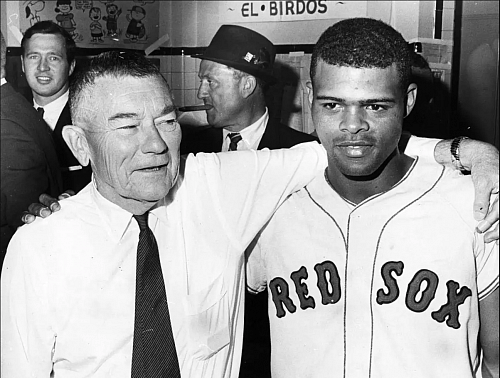Boston’s Yawkey Way Now Officially Gone, But What About “Jersey’s” Past?

BOSTON — The city's improvement commission voted unanimously on Thursday to enact a petition submitted by Boston Red Sox owner John Henry to permanently delete the namesake of a former Hall of Fame-enshrined owner from one of the Hub's most well-known streets.
Yawkey Way, named in honor of former Red Sox owner Tom Yawkey 41 years ago following his death at 73 in July of 1976, will be renamed Jersey Street — its original name.

